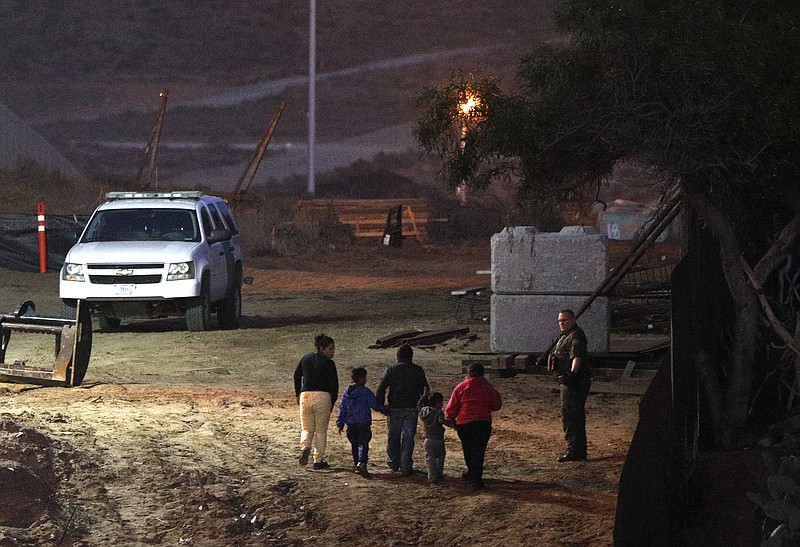WASHINGTON (AP) — The Trump administration separated 81 migrant children from their families at the U.S.-Mexico border since the June executive order that stopped the general practice amid a crackdown on illegal crossings, according to government data obtained by the Associated Press.
Despite the order and a federal judge’s later ruling, immigration officials are allowed to separate a child from a parent in certain cases — serious criminal charges against a parent, concerns over the health and welfare of a child or medical concerns. Those caveats were in place before the zero-tolerance policy that prompted the earlier separations at the border.
The government decides whether a child fits into the areas of concern, worrying advocates of the families and immigrant rights groups that are afraid parents are being falsely labeled as criminals.
From June 21, the day after President Donald Trump’s order, through Tuesday, 76 adults were separated from the children, according to the data. Of those, 51 were criminally prosecuted — 31 with criminal histories and 20 for other, unspecified reasons, according to the data. Nine were hospitalized, 10 had gang affiliations and four had extraditable warrants, according to the immigration data. Two were separated because of prior immigration violations and orders of removal, according to the data.
“The welfare of children in our custody is paramount,” said Katie Waldman, a spokeswoman for the Department of Homeland Security, which oversees U.S. immigration enforcement. “As we have already said — and the numbers show: Separations are rare. While there was a brief increase during zero tolerance as more adults were prosecuted, the numbers have returned to their prior levels.”
At its height over the summer, more than 2,400 children were separated. The practice sparked global outrage from politicians, humanitarians and religious groups who called it cruel and callous. Images of weeping children and anguished, confused parents were splashed across newspapers and television.
A federal judge hearing a lawsuit brought by a mother who had been separated from her child barred further separations and ordered the government to reunite the families.
However, the judge, Dana Sabraw, left the caveats in place and gave the option to challenge further separations on an individual basis. American Civil Liberties Union attorney Lee Gelernt, who sued on behalf of the mother, said he hoped the judge would order the government to alert them to any new separations, because right now the attorneys don’t know about them and therefore can’t challenge them.
“We are very concerned the government may be separating families based on vague allegations of criminal history,” Gelernt said.
According to the government data, from April 19-Sept. 30, 170 family units were separated because they were found to not be related — that included 197 adults and 139 minors. That could also include grandparents or other relatives if there was no proof of relationship. Many people fleeing poverty or violence leave their homes in a rush and don’t have birth certificates or formal documents with them.
Other separations were because the children were not minors, the data showed.

